There Will Be Blood begins at the break of the twentieth century as the entire country of the United States adopted capitalism as its new order. In the time when earning a place in the business world was as important as anything, Daniel Plainview, a self-absorbed oilman, was trying to make it big.

Business meant everything for Daniel. With a composed self and a cute little son as his primary assets, he traveled through America to conquer the oil empire. He made his way to Little Boston in search of oil, consequently fighting an inner battle between the human and the power-hungry capitalist in him. When these separate worlds collided without reason, what happened was There Will Be Blood.
The film takes an interesting story structure as the story jumps from one decade to another right as we stumble upon an interesting plotpoint, opening up a newer perspective on Plainview’s persona. This jump in time facilitates the overamplification of particular personality traits that crop up in the previous scene.
From being a man tough enough to drag himself along the mud with a broken leg, he adopts a young kid left with no family, embracing his softer side. At what seems to be the ideal juncture to explore more of this equation, Paul Thomas Anderson chooses to teleport us to the next decade where his son is more than a son to him.

“I run a family business. This is my son and my partner, H.W.”
He now includes his son in every one of his business deals, calling himself a man running a family enterprise, giving his words more sympathy and credibility.
These huge leaps from one time period to another help us see Daniel Plainview as is. Which is that, in almost every situation, all he looks for is opportunities that could help him further establish his monopoly.
In a visually striking gas blowout halfway into the film, an injured H.W. begs Daniel to stay by his side. For then, he understandably opts out, to attend to the grander scheme of things. But when it all did end with a huge mountain of fire in the aftermath, he didn’t just run back over to see if his son got back his hearing. Like any normal person would.
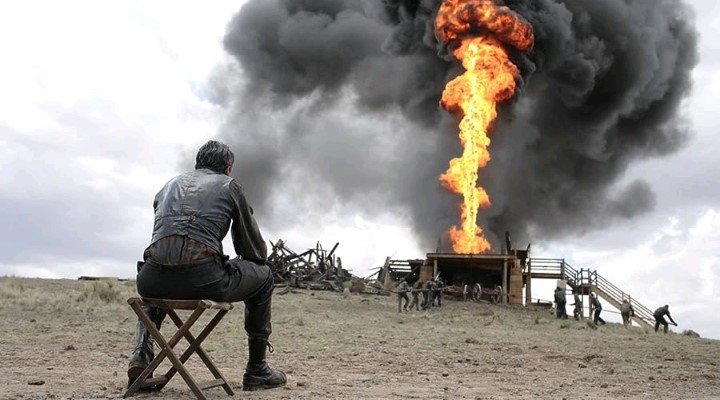
“There’s a whole ocean of oil under our feet! No one can get at it except for me.”
He was able to stare at everything in peace, comfortably forgetting about his son struggling back in the mess room. All he chose to think about was the oil ocean he was standing over. It was natural for him to feel celebratory, when the businessman in him won over the father in him by miles. It was the first instance when his ambitiousness looked overtly grayer than white.
When H.W., his primary ally in settling deals, couldn’t be of any help anymore, he had to remodel the entire company’s selling point. One of his proverbial spheres having had a structured meaning so far in his life and business had no relevance anymore. To see his son—who was once the greatest colleague he could ask for—live his life in complete solitude and misery not because he chose to, but because he just had to, Daniel had no one but himself to take the blame.
Anything that reminded Daniel of his son’s condition called him an incapable father. Including his son. Toiling with unexpressed guilt on one side and the struggle with adapting to the new amends on the other, Daniel, known to always handle himself with calm, began losing track of his sanity. All kinds of people who had something to say about his son, reasonably so or not, set him off uncontrollably.
The business end of things in Little Boston wasn’t exactly without its ebbs and flows. Right from when Plainview bought the Sunday Ranch, it was the egotistical evangelist Eli Sunday spearheading most problems of the ambitious oilman.
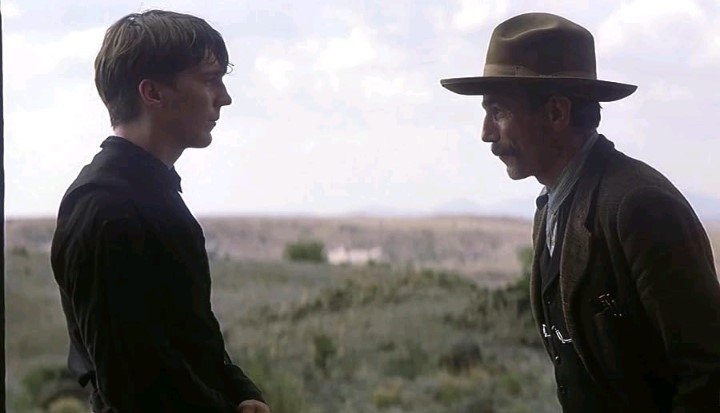
Daniel and Eli Sunday are two sides of the same coin. They embody a similarly narcissistic personality: one going after money, and the other going after religion. When Daniel desired for Eli’s world, peace couldn’t take two megalomaniacs in the same room. The ugly power struggle that followed left behind no stone unturned.
From Eli demanding a public recognition, to Daniel dragging him through the mud, every interaction between the two had been about one of them exerting their dominance on the other.
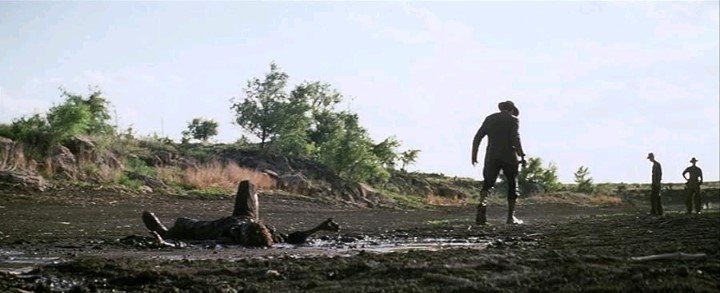
One blow after another, for the last act of antagonism, it was the oilman on the receiving end. When Daniel had to secure the Bandy Tract for good, he was coerced into an embarrassing public admission of guilt: the guilt over being a bad human, the guilt over killing a nobody, the guilt over abandoning his son.
Down on his knees, he pleaded absolution, not to Jesus Christ, but to the vessel for his holy spirit, and the head of the Church of The Third Revelation, Eli Sunday. Eli uses his opportunity to his best, to physically avenge his lost respect while everyone else applauds him in the name of God. This was everything going right for Sunday and wrong for Plainview.

“There’s the pipeline.”
Even then, Daniel Plainview, not known to take one for the team, threw his self-respect out the window, not particularly to win the race he was running, rather to stick it to Standard Oil for crossing their apparent boundaries with H.W. The price of one seemed to outweigh the consequences of the other. The relationship between the two seemed to end on a high for the godman, but that was not so.

Daniel might have deserved to be humiliated for his sins, Eli might have deserved to be beaten up for being a pain in the arse. But by the time we get to understand there could be no winner in this game, all we could do is root for fate to do its job.
Throughout the length of the film, slowly yet steadily, we go from loving Daniel Plainview to hating him. Things began to orient clearly when he did the one thing he’d never normally do: opening himself up.
“I want no one else to succeed. I hate most people.”
Only when we got to see him coming clean after every time we wondered what he was made out of, it struck us how right he was.
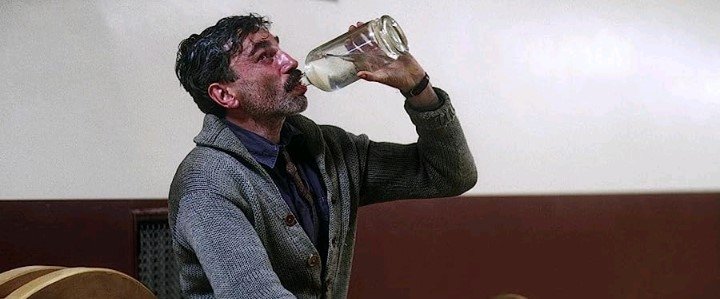
Towards the end of There Will Be Blood, Daniel has fallen headlong into alcoholism. Every single narcissistic nerve of his has overamplified over all these years of who knows what happened. Now, a raging senior citizen, constantly in the company of a bottle of drink, is living all alone in a private mansion. Madness has crept up to the top of Plainview’s head so much he begins losing control over what words come out of his mouth.
Daniel loses his license as a father, calling his son out for being an orphan, in the most inappropriate way possible. He makes a joke out of his former archnemesis, cruelly declining to lend a helping hand, going against his own words.
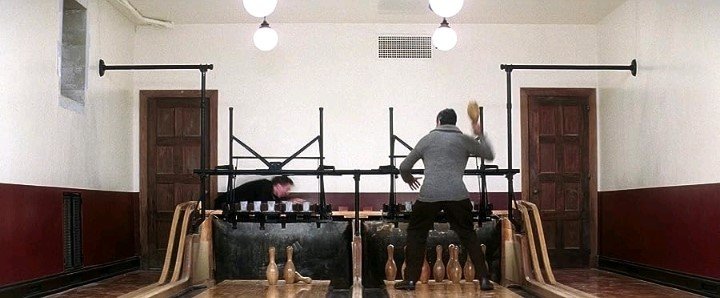
“I’m not a false prophet, you sniveling boy! I am the third revelation!”
He begins to run around, chasing Eli across the bowling alley. Having gone completely crazy, he goes on to knock down Eli Sunday with a bowling pin. And then, he goes at his head, once, twice and again, until it doesn’t move. Blood pools up around the broken skull. The entire room falls silent after a long-hauled back and forth war of words.
Paul Thomas Anderson strikes gold with the exact time and place he chooses to let the viewers know that Plainview damn well realizes his flaws, perhaps more so than the people that surround him. But he chooses to embrace the devil in him.

By the end, Daniel turned successful in destroying all two of the spheres that kept him in tact. The downward spiral into madness comes to a horrific close. Daniel, down on the floor, now a demented offender, says, with a light heart, “I’m finished!” This time, both literally and metaphorically.


